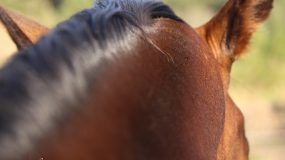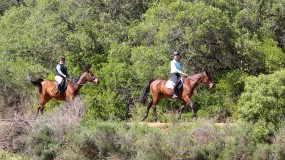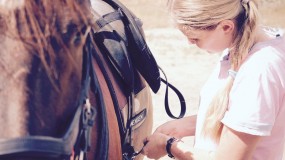Recently I read an article on TheHorse.com which cited a study which found that the majority of horses do not like being groomed. It made me do a bit of a head tilt and I was confused at first, until I started remembering what my horses used to be like when Equanimity was still operating as a riding school. Despite my best efforts at educating riders, there were still one or two horses at the yard who would pin their ears when being groomed or tacked up or who were not easy to catch (by clients). I researched extensively and got the softest brushes and girths, experimented with grooming pressure and timing and also made sure that these horses were treated for gastric ulcers.
One horse, (Spirit) it turned out, had cancer which had spread to her internal organs and this was making her extra sensitive and uncomfortable around her abdominal area. Our reproductive vet, upon palpitation and after numerous failed attempts at AI conception, discovered one melanoma blocking Spirit’s cervical opening. It was so large, that Spirit would have felt like she was three-months pregnant for quite some time. Spirit had a weak thoracic sling from always carrying weight around her belly and not working correctly and this made her more girthy, too.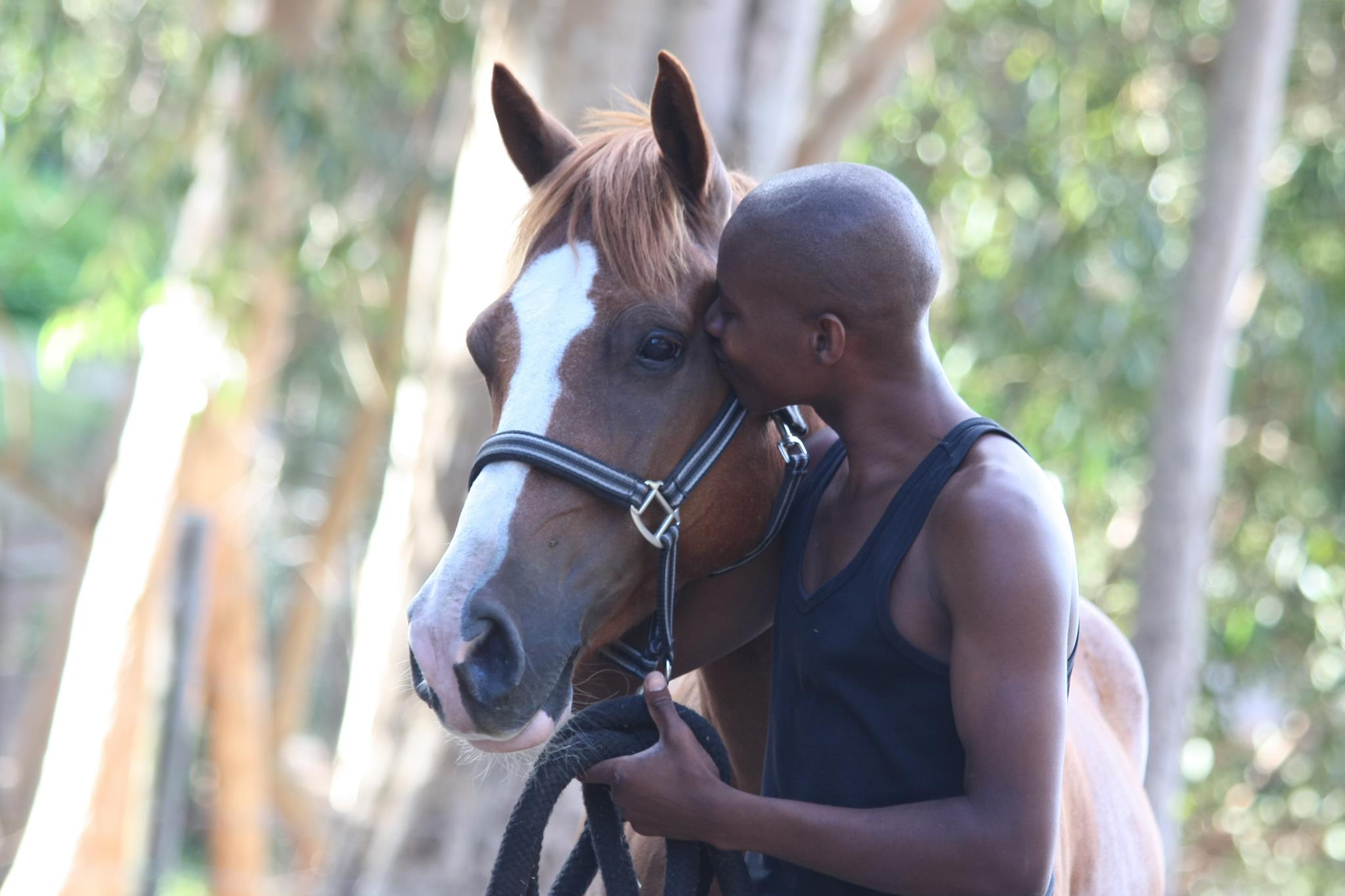
The other horse, Ash, became girthy and unhappy about grooming after re-fracturing the tip of her illium shortly after arriving with us. The combined frustration of being on box rest – being harassed by painful poking, prodding and constant faffing, as well as strong medications which caused gastric ulceration from long-term use (a catch-22 with these injuries), caused Ash to become irritable and defensive about grooming times. There are very few cases where there isn’t a current physical reason for a horse reacting negatively to grooming. For Ash, it was pain memory.
What struck me was that these were the only two of my horses I could think of who disliked being groomed and tacked up. I feel so, so immensely blessed that this is the case and it’s the whole reason why the TheHorse.com article bugged me. None of my horses dislike being groomed. Most of them come to request it – especially the babies. So where do we go wrong? How did 69 horses in one study all show signs of stress at the thought or act of grooming?
I believe that the issue lies with our unwillingness to adapt to the horse instead of expecting it to adapt to us. The usual “textbook” way of grooming a horse has a very specific order and routine and although textbooks often remind the reader to work more gently over sensitive areas, this is often something that goes completely unnoticed. In large or busy yards, especially, the grooms can be seen working very quickly, their own rhythm and style following them to each horse. Warnings to bite or kick are met with reprimand or shorter leads and the horses are required to comply irrespective of their discomfort. There is a certain obliviousness to this type of grooming which sees grooming as a task to get through. This lack of awareness means that an opportunity for bonding and creating trust and relaxation is completely missed. If we consider that sometimes these horses go off to stressful training sessions directly after being groomed, or that they might return from their paddock hungry and eager to have supper, only to be prevented to do so my the routine of grooming before bedtime, we can understand their negative reactions to grooming a bit better.
The other factor to consider with regards to grooming and work is the ever-important concept of consent and the “no-go zone”. When we spend time with horses, they are constantly giving us feedback. If we pay attention, we will know exactly how they feel about every single thing we ask of them. The line becomes blurred when we’re faced with particularly fearful or aggressive horses. They have usually had their requests ignored so many times that their reactions have not only escalated, but that they have decided to resort to extreme reactions of fight or flight at the smallest provocation. There are very few cases where negative behaviour just “comes out of nowhere” – usually there are signs leading up to dangerous behaviour. These signs are more easily recognisable when we understand a horse’s threshold or tolerance for touch or discomfort.
Broken horses might be shut down and expressionless until they are allowed to voice their opinion about certain activities. In serious rehab cases, it is imperative that the horse learns to adapt to reasonable demands set by an unnatural environment such as a stable yard. In order to survive, there must be some level of compromise and adaptation. The horse, however, has very little choice in negotiating the rules with us. What they can be clear on is autonomy over their body. By grooming in certain mechanistic ways, we ignore the horse’s body autonomy and invade their personal space on an offensive and even aversive level. This is when grooming stresses horses. When we take time to discover which areas a horse likes to be touched, how much pressure they prefer, where their itchy spots are and where their sensitive or “no-go” areas are, we provide ourselves with the opportunity to show the horse that we are paying attention to their needs. Sure, the job still needs to get done, but instead of treating the horse like a table needing a polish and buff, rather by acknowledging and respecting the horse’s “no-go” areas, we are recognising their freedom to express how they feel about their bodies.
Working in this way has afforded myself, my staff and my clients the ability to recognise parasite infestations before they get out of hand. It has helped us to keep that special scratch spot as a treat when our horses do something we like. It has helped us to use our grooming routine as a tool for relaxation and feedback, rather than a means to an end. It has also taught us about negotiation, fairness and empathy and those lessons are great to learn and worrisome to miss out on.
Expanding the “no-go zone” and obtaining consent are skills to learn on their own, but working on awareness and empathy is the basis for teaching the horse healthy coping mechanisms regarding our man-made routines.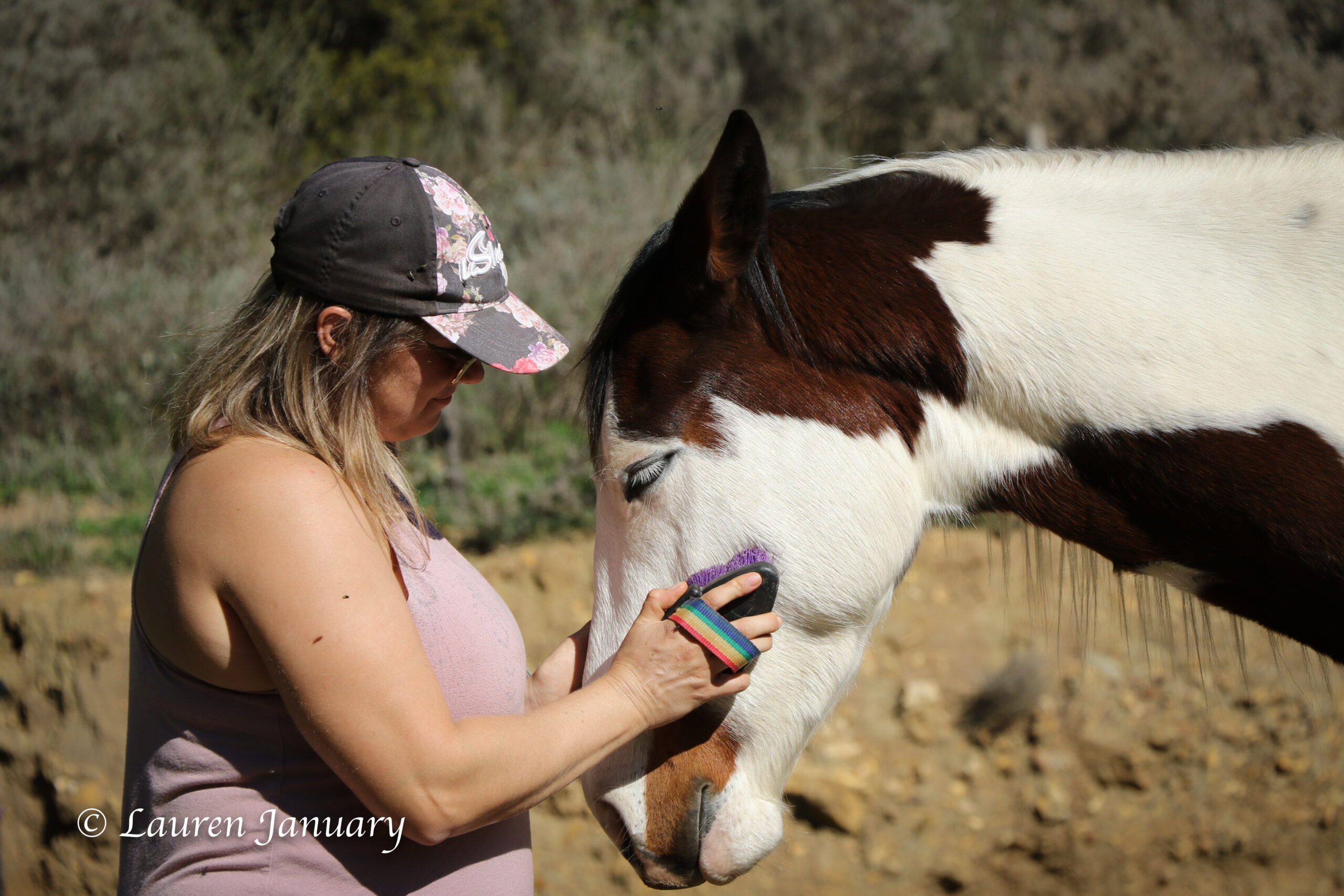
The TheHorse.com article discussed above can be read here: https://thehorse.com/177049/do-horses-like-being-groomed-probably-not-study-finds/

